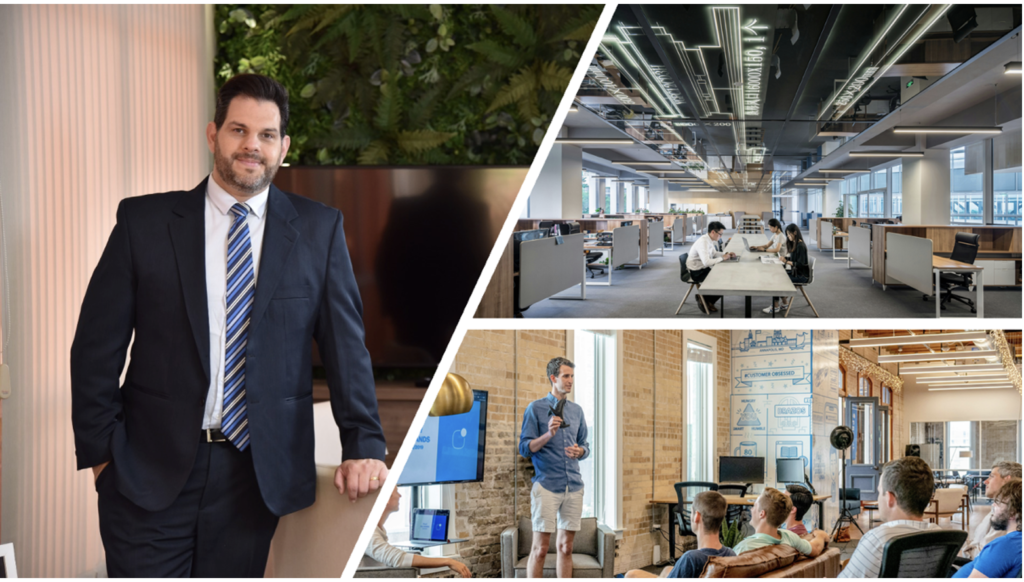The Death of Creativity How AI Is Replacing the Soul of New Generations

As artificial intelligence (AI) becomes increasingly used to create content, automate processes, and even replace creative tasks, its growing presence is having a profound impact on the development of genuine creativity, particularly among younger generations. This shift is not only transforming the advertising landscape but also affecting other creative industries, where true emotion, human engagement, and life experience are essential to fostering innovation.
The use of AI to replace human creativity has raised concerns, particularly among recruiters and HR professionals around the globe. Marcos Tonin, a career expert across 14 countries and executive coach to multinational corporations, who has developed over 40.000 professionals, warns: “Pure creativity, which was once fueled by real human experiences, is slowly dissolving. With the advent of AI, what was once a work of art crafted by creative minds is now replaced by algorithms that imitate the past, offering a version of the future that doesn’t create but simply reproduces.”
This phenomenon goes beyond advertising and jingles. Instead of genuinely engaging people, new generations are increasingly relying on automated tools that, while impressive, lack the human soul necessary to form authentic connections with audiences.
The Creative Talent Crisis
The transition to automation and the growing use of AI may be creating a generation that, although highly skilled in technology, lacks the ability to generate innovative ideas independently. Across industries, from advertising to fashion and design, companies are noticing a “talent blackout” of creative professionals. Workers are becoming more reliant on machines that suggest the “obvious” and generate patterns based on data but fail to create something truly new.
According to the Global Talent Trends 2023 report by Gartner, 56% of CEOs are concerned about the shortage of creative skills in their teams, with increasing focus on digital skills, yet a lack of true innovation. This creative talent gap is driven by automation, which often replaces the need for creative exploration, resulting in mechanical processes rather than genuine experimentation.
Furthermore, McKinsey & Company’s study on digital transformation shows that while AI has the potential to increase productivity, it can also reduce the capacity for innovation within creative teams. The study reveals that 65% of professionals in tech companies reported that AI adoption increased efficiency, but paradoxically, 49% of leaders in the creative industry feel it is diluting originality and the ability to develop new ideas.
The Loss of Real Engagement with Creative Work
When creativity is delegated to machines, emotional involvement and engagement with the work diminish significantly,” says Tonin. While AI can offer data-driven suggestions, these systems cannot replicate the passion and human experience that drive true innovation. True innovation often comes from exploring out-of-the-box ideas, which are not only based on logical patterns but also on personal and contextual experiences. This creates a disconnect between younger generations and creative work.
In a digitalized world, where work is often done remotely and human interaction is minimal, the danger is that younger generations are increasingly distancing themselves from the purpose and depth of what they are creating. When creative decisions are made by algorithms, human engagement is lost, and work becomes just another task to complete, devoid of the spark of genuine inspiration.
The HR executive adds: “The true value of creativity lies in how it moves, engages, and inspires others. When we allow machines to do all the creative work, we sacrifice the emotional connection that is the essence of any successful creation. AI can suggest, but it will never touch people’s hearts the way a human can.”
The Impact on the Future of Creativity
The future of creativity seems to be at risk, as younger generations become more reliant on automated tools, which, while powerful, lack the ability to produce the kind of disruptive innovation that defines major cultural and technological shifts. AI may improve productivity and efficiency, but as Tonin points out, it will never capture the essence of human creativity. “Creativity is the ability to go beyond the obvious, to surprise, to bring something new, something never seen before. And that, AI cannot do,” Tonin says.
In many companies, the heavy use of technology and digitalization is creating a false sense of innovation. While digital tools can optimize processes, the true magic of innovation, which comes from human interaction and the exchange of experiences, is disappearing. As a result, the creative world is becoming increasingly homogeneous, lacking that unique touch that makes something stand out and truly resonate with people.
Tonin concludes: “True innovation happens when people allow themselves to explore, fail, and learn from their mistakes. When we hand the entire creative process over to machines, we are creating a future in which true human inspiration will become increasingly rare. This may lead us to a more efficient world, but without the soul that gives meaning and purpose to what we do.”
Conclusion
The impact of AI on the creative field is deep and concerning. As younger generations become increasingly dependent on technology to create, we risk losing the true soul of creativity. Genuine creative work, which results from lived experiences and real emotional connections, is being replaced by a mechanical, impersonal process generated by machines that simply imitate the past.
While AI can be a powerful tool, it will never replace human creativity, which is capable of transforming the ordinary into the extraordinary. The future of innovation depends, more than ever, on balancing technology with intuition, emotion, and experience – qualities that no machine can replicate. If this balance is not achieved, we risk losing a vital part of our ability to create and connect with the world around us.




